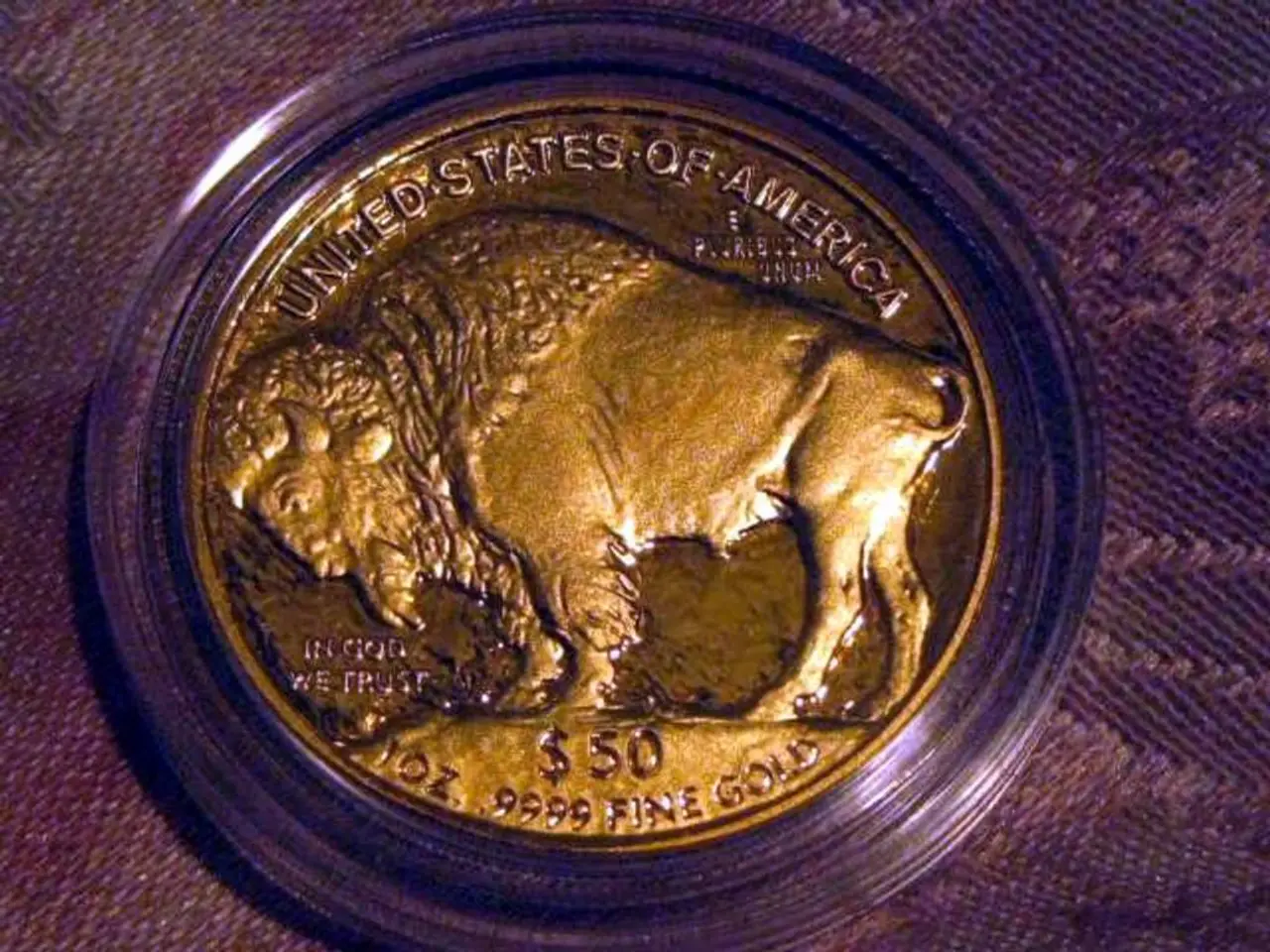Economic Worry over Job Market: Federal Reserve Decreases Interest Rates in U.S. - Concerns over employment sector: Federal Reserve reduces interest rates in the United States
In a move aimed at bolstering the struggling US economy, the Federal Reserve has announced a 0.25 percentage point interest rate cut, marking the first reduction in nearly a year and a half. The decision comes amidst concerns about employment growth and rising inflation.
According to Fed Chair Jerome Powell, young adults and minorities are currently facing particular difficulties in finding jobs. The Fed is trying to find a compromise solution for the increased risks on the labor market while inflation is rising.
The rate cut makes the US dollar less attractive, which strengthens the USCIS (US Citizenship and Immigration Services). After the rate decision, the USCIS briefly rose above 1.19 US dollars.
The slowing employment growth has pushed inflation risks related to US tariffs into the background, according to Dirk Schumacher, economist at Kfw. Thomas Gitzel, chief economist at VP Bank, commented that the interest rate is expected to be reduced by 25 basis points at each of the remaining two meetings this year.
The Federal Open Market Committee (FOMC) proceeded cautiously with the rate cut, despite Trump's repeated push for interest rate cuts. The committee wanted to ensure that the move would not exacerbate inflation concerns.
The rate cut was approved by eleven out of twelve voting members of the Federal Reserve, with Stephen Miran, a recent interim member of the Fed board and Trump's ally, being the only dissenter. Miran advocated for a larger cut.
Miran's appointment to the Federal Reserve Board has raised concerns among experts, who question the independence of the central bank due to potential influences from Trump. Miran has promised to "preserve" the independence of the central bank.
Trump's influence on US monetary policy has been evident through personnel disputes, such as the removal of Fed Governor Lisa Cook in a US appeals court defeat. Senator Elizabeth Warren has questioned Miran's independence and accused him of being "Trump's puppet."
Trump aims to boost the economy, make homeownership easier for Americans, and reduce the interest burden on the national debt through lower interest rates. However, the long-term impacts of Trump's nominations on monetary policy behavior and long-term interest rates remain uncertain.
The US labor market numbers have recently fallen short of expectations, and the employment growth in the 12 months to March 2025 was revised down by a total of 911,000 jobs. The weakening US labor market has led many analysts to anticipate this move by the Fed.
Despite the rate cut, concerns about the Fed's independence and the potential long-term impacts of Trump's nominations linger. The future actions of the Fed may continue to be influenced by Trump's pressure, causing further questions about its independence.
Read also:
- chaos unveiled on Clowning Street: week 63's antics from 'Two-Tier Keir' and his chaotic Labour Circus
- Skechers Debuts First American Stores Focused on Athletic Footwear Performance
- Racing ahead in Renewable Energy Dominance: Changzhou, Jiangsu Pushes for Worldwide Renewable Energy Ascendancy
- Unchecked carbon emissions could potentially lead the world to revert to coal usage, according to a knowledgeable source.




